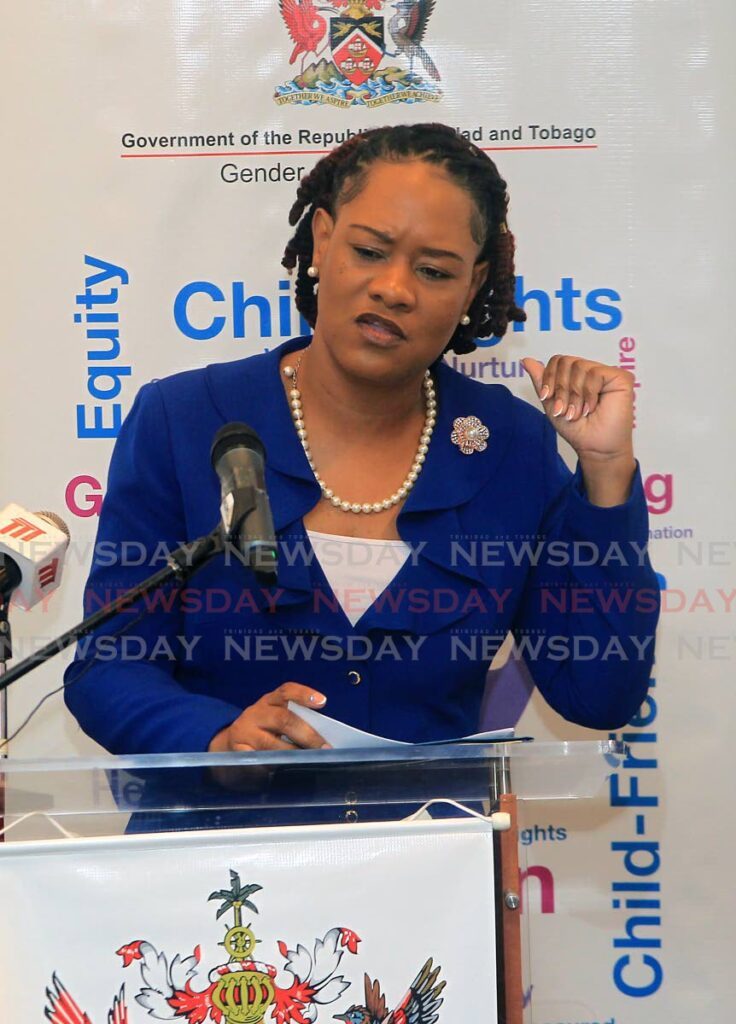Big job for women's security advisory group

DESPITE a sharp response from NGOs at being excluded from its core formation, the Women, Peace and Security (WPS) Advisory Group has a bold ambition: to empower women as active agents for peace and stability.
The core UN programme was brought to Gender and Child Affairs Minister Ayanna Webster-Roy by the Canadian high commissioner, Arif Keshani, in January 2023.
As part of the process to developing the project, an NGO-led workshop was held. TT's WPS is comprised of representatives from the Institute of Gender and Child Affairs, the High Court, the police service, the Coast Guard, legal and health representatives, the UN, and representatives from the Gender Affairs and Social Development ministries. That's a lot of top-level people in one room already, but almost all of them operate at a remove from the challenged streets and neighbourhoods where real change must be effected.
It would seem sensible, therefore, to create the proposed national action plan in close collaboration with the NGOs already working to strengthen women in at-risk communities.
The initiative was created under resolution 1325 (2000) and consists of four pillars, increasing the participation of women in decision-making, protecting women and girls from gender-based violence, preventing violence against women, and accounting for the particular needs of women and girls in relief and recovery efforts.
Resolution 1325 was formulated specifically to address the circumstances of conflict situations, including war zones and refugee encampments and an additional seven resolutions introduced to supplement it to build out that scope to meet the global variations in experienced reality.
In his 2023 report on the WPS initiative, the UN secretary general noted that "even when they are excluded from peace tables and the halls of power, women are often celebrated for building peace from the ground up. Their successes are not often publicised, and they received little support."
It is these efforts that the WPS is designed to identify and uplift, and any implementation of the principles in the local context must emphasise this strategy.
Trinidad and Tobago does not have an institutionalised patriarchy that officially diminishes the role of women, but it is also true that the lip service given to gender equality does not offer the same firm footing for women that it does for men in this society.
Recognising the role that capable and sensible women, willing to offer divergent perspectives in difficult situations, can bring to potential conflict and violence will be a critical task for the local WPS grouping.
A key element of the establishment of a national WPS is ongoing monitoring and evaluation of all the actions of the agency – long-term, medium-term and short-term.
Identifying where its efforts are successful as well as where they fall short will be critical to modifying the UN's principles to meet local needs.


Comments
"Big job for women’s security advisory group"